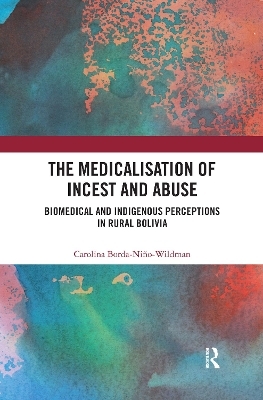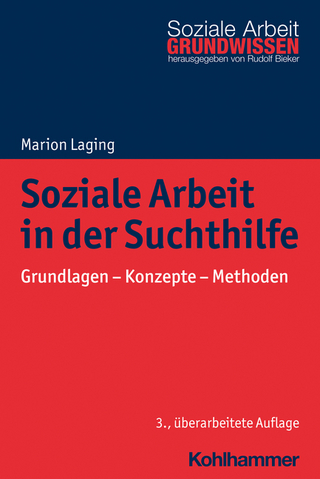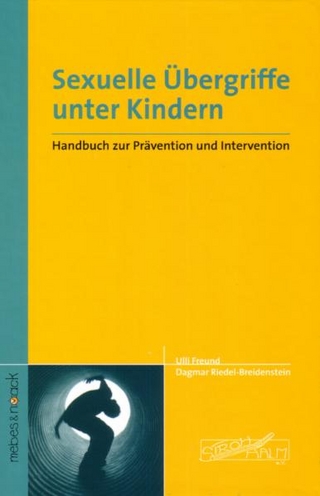
The Medicalisation of Incest and Abuse
Routledge (Verlag)
978-0-367-43103-7 (ISBN)
- Titel z.Zt. nicht lieferbar
- Versandkostenfrei innerhalb Deutschlands
- Auch auf Rechnung
- Verfügbarkeit in der Filiale vor Ort prüfen
- Artikel merken
Combining biomedical, psychological, and anthropological approaches to intergenerational incestuous violence experienced by rural indigenous [and] peasant women in the Andean region, this book raises new questions surrounding humanness and the normalisation of sexual violence. Through original ethnographical research, the author analyses Andean understandings of incest, medical positivist practices, as well as the psychiatric ‘treatment’ of incestuous and gender-based violence.
The book examines the implications that psychiatric institutionalisation within the context of interethnic, gender, and class schemes, has on what it means to be human. It also draws on a theoretical framework in order to understand how discourses shape, and are simultaneously problematized by individual experiences of sexual violence and incest. Intergenerational incestuous violence against women is not necessarily an exceptional event, but can be an ordinary process, one where through the articulation of biomedical and indigenous medicine, as well as indigenous and mestizo forms of administration of political power, women as subjects can become possible.
This book will appeal to scholars and students with an interest in gender-based violence, as well as mental-health practitioners and academics in Latin American studies, anthropology, gender studies, and sociology.
Carolina Borda-Niño-Wildman is a Colombian anthropologist, political scientist, and butoh dancer, working on academic and applied research on gender, ethnicity, identity politics, human rights, performance, and humanness in contexts of violence in Latin America and Europe.
List of Figures, Chapter 1. Introduction, 1.1 Departure points, 1.2 Gender violence, 1.3 Incest, 1.4 Lawfulness and heterosexual intergenerational incest, 1.5 Incest in Bolivian Law, 1.6 Sexual violence, incest and ethnicity, 1.7 Institutional violence, 1.8 The research, 1.9 The main characters, 1.10 The organisation of the manuscript, 1.11 References, Chapter 2. Gender, Ethnicity and Class in Bolivia’s National Psychiatric Hospital, 2.1 Introduction. The psychiatric contradiction: to be "ill" is to be "dangerous", 2.2 The National Psychiatric Hospital since the unification of the INPGP (Instituto Nacional de Psiquiatría Gregorio Pacheco) (1980), 2.3 Power relationships: the staff and the inmates, 2.4 "Evo only likes señoritas": imagining hierarchies, 2.5 Relationships between staff and inmates, 2.6 Relationships among medical and non-medical staff, 2.7 Relationships between religious, medical and non-medical staff, 2.8 Control mechanisms: is she dangerous or ill? Conceptions of "mental illness": diagnosis and treatment, 2.9 Diagnosis: "hablando con la pared" (talking to the wall), 2.10 Treatment, 2.11 Give them their place: they mustn’t forget, 2.12 Patient’s rights, 2.13 Final remarks, 2.14 References, Chapter 3. Humanness as a Continuum, 3.1 Introduction: Sexual violence against women in Bolivia, 3.2 Sexual violence against women and psychiatry in Bolivia, 3.3 Sexual violence as a common background of female inmates, 3.4 Qhencha: the outside within the psychiatric hospital, 3.5 Final remarks, 3.6 References, Chapter 4. Las Condenadas: from Indigenous Traditional Medicine to Psychiatric Biomedicine, 4.1 Introduction, 4.2 Incest and kinship, 4.3 Incest, Qhencha, homo sacer, 4.4 Qhencha as an implicit experiential concept, 4.5 Susto, 4.6 Sacer, 4.7 Schizophrenia, third person: I am the third Eve, 4.8 Final remarks, 4.9 References, Chapter 5. Conclusions, 5.1 Incest and its universality, 5.2 Psychiatric institution, 5.3 Situated knowledge, 5.4 Third person, 5.5 References, Appendice, Photographs, References
| Erscheinungsdatum | 16.09.2019 |
|---|---|
| Zusatzinfo | 31 Halftones, black and white |
| Verlagsort | London |
| Sprache | englisch |
| Maße | 156 x 234 mm |
| Gewicht | 460 g |
| Themenwelt | Sozialwissenschaften ► Ethnologie |
| Sozialwissenschaften ► Pädagogik ► Sozialpädagogik | |
| Sozialwissenschaften ► Soziologie | |
| ISBN-10 | 0-367-43103-3 / 0367431033 |
| ISBN-13 | 978-0-367-43103-7 / 9780367431037 |
| Zustand | Neuware |
| Informationen gemäß Produktsicherheitsverordnung (GPSR) | |
| Haben Sie eine Frage zum Produkt? |
aus dem Bereich


